Pennsylvania Expungement Lawyer
Past criminal charges can significantly impact your future opportunities. Employers, landlords, financial institutions, universities, and many other entities look at your criminal record to determine your eligibility for their jobs, housing, loans, and programs. Even though you’ve become a different person and are looking for a fresh start, your criminal record may hold you back.
What if you could erase your criminal record? Expungement is the legal process of removing minor charges or offenses from your record. To pursue expungement of your charges, you’ll need to work with a Pennsylvania expungement attorney with extensive experience and a strong commitment to your case.
At James H. Bonner, Esquire, P.C., we’re dedicated to helping people across Pennsylvania move forward from their pasts. Contact us today at 610-450-4555 to learn how we can assist you.
What Is Expungement?
Expungement is a court-ordered process of erasing a criminal offense from a person’s public criminal record. The charge will no longer be visible on law enforcement records or any other official databases. For the majority of purposes, it will be like the arrest or conviction never occurred; the judge will order the records to be destroyed.
Only certain records are eligible for expungement, and only after a certain period of time. Our criminal attorneys can help you determine if you meet the qualifications for expungement, and completing the expungement process could give you a new lease on life.
Effects of Expunging a Record
Expunging a criminal conviction or arrest removes it from your record in the majority of cases. In certain instances, you may still need to disclose it, such as if you are under oath. However, you likely will not need to provide the legal history behind the record.
Aside from rare cases, expungement can help you completely erase eligible events from your criminal record:
- The record will no longer show up on background checks.
- Landlords will no longer see the expunged record.
- The majority of future employers will not see it in a background check, aside from the federal government.
- The court will order that record to be physically destroyed.
Expungement Qualifications in Pennsylvania
Pennsylvania recognizes several different types of expungement orders, and the qualifications you need to meet may depend on the specific order.
Expungement is typically available for summary offenses, which are minor criminal offenses. They’re often referred to as “non-traffic citations” and are in a similar class. Examples of summary offenses include:
- Disorderly conduct
- Harassment
- Loitering
- Low-level retail theft
- Disrespectful behavior in a courtroom
- Writing bad checks
- Public intoxication
- Underage drinking
The following criminal offenses are not eligible for expungement in Pennsylvania:
- Rape
- Sexual assault
- Statutory sexual assault
- Indecent assault
- Aggravated indecent assault
- Indecent exposure
- Charges involving obscene materials and performances
- Prostitution and related offenses
Types of Expungement Petitions
The court does not automatically grant expungement to people who meet certain qualifications. If you want to expunge a record, you will need to file a petition with the court. The court will review your record and eligibility criteria and make a person-by-person determination for expungement.
The following are the types of expungement petitions available under Pennsylvania state legislation:
- Summary Expungement: A petition to erase a summary conviction from your record when at least five years have passed since the date of the conviction and there are no other criminal prosecutions in those five years.
- Juvenile Record Expungement: A petition to erase a juvenile court prosecution after you turn 18 or after five years with no other criminal conduct.
- Section 17 Expungement: A type of expungement available for certain charges, like marijuana or paraphernalia, where you can complete a special diversionary program to avoid a conviction. Through Section 17, you can ask to clear the charge from your record.
- ARD Expungement: A petition to remove a criminal charge that did not lead to a conviction because you completed an Accelerated Rehabilitative Disposition (ARD) program. This program is sometimes available if it is your first offense for a crime like driving under the influence.
- Criminal Record Sealing (Limited Expungement): A process to “seal” small, non-violent misdemeanors after 10 years of law-abiding behavior.
- Expungement of Withdrawn or Dismissed Charges: If a charge was brought against you but did not result in a conviction, you can seek to expunge it from your criminal record
- Expungement of Pardoned Charges: The Governor of Pennsylvania can grant you a pardon for charges and make them expungable.
- Expungement of Convictions for Individuals Over 70: If you are aged 70 or older, you can seek to expunge a felony or misdemeanor conviction if you had no criminal behavior in the previous 10 years.
Working with a Pennsylvania expungement attorney from James H. Bonner, Esquire, P.C., will help you understand whether you may qualify for any of these expungement petitions. Your attorney can review the specified details of your criminal charges or convictions and provide personalized legal guidance.
The Expungement Process
If your attorney determines that you are eligible for expungement, they will guide you through the legal process. Expungement generally involves the following steps, though your case may look different depending on the type of petition you file, your criminal charges, and other factors.
Requesting Your Criminal Record
Before you file your petition for expungement, you need to request a copy of your criminal record and pinpoint the exact offenses you would like to expunge. You can request your full arrest record via mail in Pennsylvania by filling out Form SP 4-170 and sending it to the address on the form. Along with this form, include:
- A certified check or money order (not a personal check) for $20, payable to the Commonwealth of Pennsylvania
- A copy of your government-issued photo ID
- A letter of representation or legal affidavit from your attorney
A response may take three months or longer.
Petitioning the Court
After securing a copy of your criminal record, your next step is to file a petition with the court where you were originally convicted. This process may look different depending on the jurisdiction. Your attorney can reach out to the court to determine the exact steps you need to follow to petition for expungement.
At a minimum, you need to fill out a petition form with information about the arrest record you would like to expunge and submit it to the relevant Clerk of Courts. The District Attorney then has 30 days to consent to your petition, oppose the petition, or request a hearing.
Attending an Expungement Hearing
Sometimes, a judge may grant an expungement without a hearing. If the judge requests a hearing, you and your attorney must appear in court on a designated day to provide more information about your request for expungement. Your attorney can help you prepare for the hearing and will speak on your behalf wherever possible.
Granting Your Expungement
After reviewing your case, a judge makes a determination about your petition. Should the judge decide to expunge your charge, they will sign the order and begin the process of erasing your criminal offense from the record.
The Clerk of Courts will forward the expungement order to all relevant parties, such as:
- The local township police
- The Pennsylvania State Police
- The District Attorney’s Office
- The Administrative Office of Pennsylvania Courts
In Pennsylvania, the expungement order directs these parties to physically destroy your legal record and remove any history of it. This process can take six months or longer in some cases, and after that, your charge or conviction is expunged.
How Can a Pennsylvania Expungement Attorney Help You?
The expungement process can be complex and requires an in-depth understanding of legal proceedings. But the potential outcomes are priceless: removing a criminal offense from your record and being able to move forward with your life.
Don’t risk your expungement on a minor mistake that leads the judge to oppose your petition. Instead, seek legal guidance from an attorney well-versed in Pennsylvania’s expungement process.
Working with an attorney from James H. Bonner, Esquire, P.C. can help you:
- Fully understand the offenses on your criminal record
- Determine whether your specific records are eligible for expungement
- Fill out your petition with the right information to increase your chances of success
- Confidently navigate a hearing with a judge
Do you think you may be eligible for expungement in Pennsylvania? James H. Bonner, Esquire, P.C. is ready to help you navigate this legal process. Contact our firm today at 610-450-4555 to speak with a Pennsylvania expungement attorney.
Search
Office Location
1210 N. Middletown Road, Glen Mills, PA 19342
8 West Front, Media, PA 19063
833-438-6881


